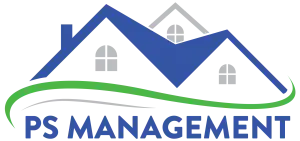10 Common Mistakes Made the typical HOA Board Member
Managing a homeowners association (HOA) or condominium association comes with major responsibilities. Board members are tasked with balancing the needs of the community against the legal, practical, and financial demands of managing an association. This article discusses ten frequent mistakes made by HOA board members, offering insights on how to avoid them for a successful and harmonious community.
1. Infrequent Attendance at Meetings
One of the essential responsibilities of an HOA board member is to attend meetings. Board meetings are where critical decisions related to the community’s operations, policies, and finances are made. Absences from these meetings can lead to serious repercussions, such as delayed decision-making and insufficient quorum. It is important for board members to be present and engaged to make effective contributions.
2. Ineffective Communication
Communication is fundamental to successful HOA management. This encompasses interactions within the board, with the management company, and with homeowners. A lack of transparent communication can result in misunderstandings, frustrations, and a breakdown of trust. Good communication practices include prompt email responses, well-crafted announcements, and regular community updates.
3. Overlooking Financial Duties
Monitoring the financial stability of an association is a essential responsibility. This entails budgeting, tracking expenses, and ensuring there are adequate reserves for future repairs and maintenance. Mishandling financial resources or disregarding financial reports can lead to budget deficits, unexpected assessments, or even legal troubles. Always assess and comprehend financial statements and seek professional guidance when needed.
4. Disregarding Deed Restrictions
Deed restrictions are legally enforceable regulations that dictate what homeowners can and cannot do with their properties. Ignoring these restrictions can lead to disputes and diminish property values. It is essential for board members to consistently enforce these rules and periodically review them to ensure they align with current community standards.
5. Not Updating Community Rules
Community rules and regulations should adapt to the changing needs of the community. Outdated policies can create conflict and be challenging to enforce. Regularly review and update the rules to reflect contemporary trends, legal standards, and community preferences. This proactive strategy can help avert many common disagreements.
6. Dismissing Professional Counsel
Many HOA boards are made up of volunteers who may lack expertise in areas like property management, law, or finance. Ignoring the advice of professionals—such as community managers, lawyers, and accountants—can lead to suboptimal decisions. It is essential to seek and value professional advice for effective governance.
7. Exceeding HOA Board Member Authority
Board members should be aware of the boundaries of their authority. Acting on personal agendas, micromanaging, or bypassing established procedures can result in conflicts and inefficiency. Always ensure that your actions align with the association’s bylaws and governing documents, and avoid making unilateral decisions without consensus from the board.
8. Neglecting Maintenance and Repairs
Timely maintenance and repairs are essential for maintaining property values and ensuring resident safety. Failing to perform these duties can lead to costly emergency repairs and dissatisfied residents. Establish a regular maintenance schedule and commit to following it closely to prevent unforeseen issues.
9. Lack of Understanding of Legal Responsibilities
Not being familiar with legal requirements may expose the association to liability. This includes local, state, and federal laws, and the association’s governing documents. Ignorance is not a valid defense in legal matters. Regularly educate yourself about relevant laws and consider participating in training sessions, such as PS Property Management’s new Board Member Video Training series.
10. Engaging in Ethical Misconduct
Board members must act with integrity and avoid actions that may be perceived as conflicts of interest. This includes making decisions that favor personal interests or partaking in practices like accepting kickbacks from vendors. Ethical misconduct can damage trust and lead to legal repercussions. Maintain transparency, honesty, and always prioritize the welfare of the community.
Conclusion
Being an HOA board member is a challenging yet rewarding volunteer position. By steering clear of these common pitfalls, you can help your community operate smoothly and remain an appealing place to live. Always aim for transparency, ethical conduct, and proactive management to nurture a healthy, thriving community. For additional learning and development, consider using resources such as PS Property Management’s Board Member Video Training series to improve your knowledge and effectiveness as a board member.
By following these guidelines and recognizing potential issues, board members can better navigate their roles, eventually promoting a well-managed and content community. Keep in mind that proactive and knowledgeable board members are essential for creating a harmonious and successful homeowners association.
